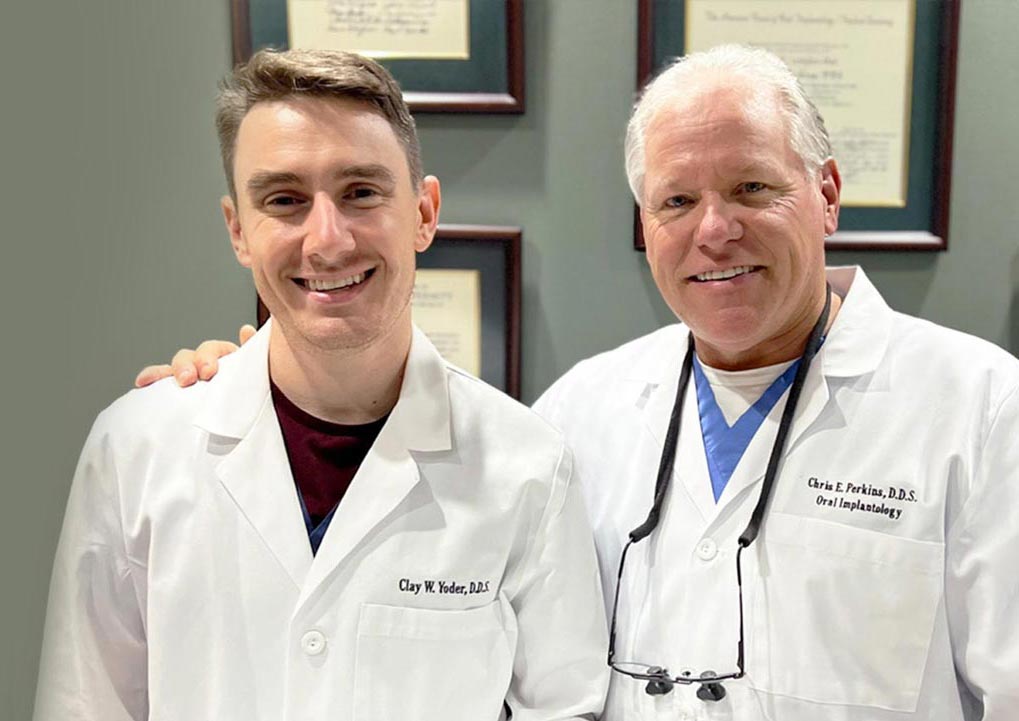
Periodontal disease, commonly known as gum disease, is a severe infection of the gums that can lead to significant oral health problems if left untreated. At Chris E. Perkins, DDS & Associates in Kingwood, TX, we are dedicated to helping our patients understand and manage this condition. This article will explore how periodontal disease affects oral health, its causes, symptoms, and the available dental treatment options in Kingwood, Texas.
What is Periodontal Disease?
Periodontal disease is an inflammatory condition affecting the tissues surrounding and supporting the teeth. It begins with bacterial growth in the mouth and can end—if not properly treated—with tooth loss due to the destruction of the tissue that surrounds your teeth.
Causes and Risk Factors
The primary cause of periodontal disease is the accumulation of plaque—a sticky, colorless film of bacteria that forms on your teeth. When plaque is not removed by brushing and flossing, it can harden into tartar, which can only be removed by a dental professional. Several factors can increase the risk of developing periodontal disease, including:
- Poor oral hygiene
- Smoking or chewing tobacco
- Hormonal changes, such as those during pregnancy
- Certain medications that cause dry mouth
- Diseases such as diabetes and rheumatoid arthritis (Mayo Clinic) (CDC) (Cleveland Clinic) .

Periodontal Disease Early Signs & Symptoms to Watch For
In its earliest stage, called gingivitis, periodontal disease is often painless and symptoms might be subtle. Signs include:
- Red, swollen, or tender gums
- Gums that bleed during brushing or flossing
- Persistent bad breath
Advanced Symptoms of Periodontal Disease
As the disease progresses to periodontitis, more severe symptoms can develop, such as:
- Receding gums
- Formation of deep pockets between teeth and gums
- Loose or shifting teeth
- Changes in bite and tooth alignment (Cleveland Clinic) (Cleveland Clinic) .

Periodontal Disease's Impact on Oral Health
Periodontal disease significantly impacts oral health by causing gum inflammation, bone loss, and tooth loss, which can lead to further complications in oral and systemic health.
Systemic Health Issues
Research indicates a strong connection between periodontal disease and systemic health problems. Chronic inflammation caused by periodontal disease is linked to conditions such as:
- Heart disease and stroke
- Diabetes complications
- Respiratory diseases
- Rheumatoid arthritis
- Potential links to Alzheimer's disease and certain cancers (Mayo Clinic) (Cleveland Clinic) (Cleveland Clinic) .
Tooth Loss
Periodontal disease is the primary cause of tooth loss among adults. As the disease progresses, the infection and inflammation can destroy the structures that support your teeth, including the bone. This leads to teeth becoming loose and eventually falling out. Tooth loss not only affects your ability to chew and speak properly but also has significant aesthetic implications. Additionally, the gaps left by missing teeth can lead to the shifting of remaining teeth, which can further complicate your oral health. Moreover, studies have shown that tooth loss due to periodontal disease is associated with an increased risk of systemic conditions, such as cardiovascular disease and diabetes, emphasizing the importance of early detection and treatment (Mayo Clinic) (Cleveland Clinic) (Cleveland Clinic) .
Periodontal Disease: Prevention and Treatment
Preventing periodontal disease involves maintaining good oral hygiene through regular brushing, flossing, and dental check-ups, while treatment can range from non-surgical methods like scaling and root planing to surgical options such as flap surgery and bone grafts, depending on the severity of the condition.
Preventative Measures
The best defense against periodontal disease is maintaining good oral hygiene. This includes:
- Brushing twice a day with fluoride toothpaste
- Flossing daily
- Regular dental check-ups and cleanings
- Avoiding tobacco use
- Eating a balanced diet (Mayo Clinic) (NIDCR) .
Treatment Options
The treatment for periodontal disease depends on the severity of the condition. Early stages can often be managed with non-surgical treatments such as:
- Scaling and Root Planing: A deep cleaning method that removes plaque and tartar from below the gum line.
- Antibiotics: Used to control bacterial infection (CDC) (Cleveland Clinic) .
For more advanced cases, surgical treatments might be necessary, including:
- Flap Surgery: Lifting the gums to remove tartar deposits.
- Bone and Tissue Grafts: Encouraging the regeneration of lost bone or gum tissue (Cleveland Clinic) .
FAQ's About Periodontal Disease
Can periodontal disease be reversed?
Gingivitis, the early stage of periodontal disease, can be reversed with proper dental care and good oral hygiene. However, periodontitis, the more advanced stage, can only be managed, not cured (Cleveland Clinic) .
How often should I see a dentist for periodontal health?
It's recommended to visit your dentist at least twice a year for check-ups and cleanings. If you have risk factors or existing periodontal issues, more frequent visits may be necessary (Mayo Clinic) .
What are the consequences of untreated periodontal disease?
If left untreated, periodontal disease can lead to severe oral health issues, including tooth loss and an increased risk of systemic diseases such as heart disease and diabetes (Cleveland Clinic) (Cleveland Clinic) .
At Chris E. Perkins, DDS & Associates, we are committed to providing comprehensive periodontal care in Kingwood, Texas. If you have any concerns about your gum health, please contact our office in Kingwood, TX, to schedule an appointment. Your oral health is our priority.
